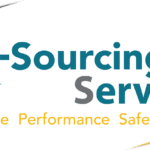Q-Sourcing Servtec
QSSK-SPCM-Social Performance & Community Relations Manager at Q-Sourcing Servtec Group
Job Description
JOB TITLE: SOCIAL PERFORMANCE & COMMUNITY RELATIONS MANAGER
About This Job:
Q-Sourcing Limited trading as Q-Sourcing Servtec is a manpower management solutions firm operating in the East African Region in the countries of Uganda, Kenya, Tanzania, Rwanda, and South Sudan.
On behalf of our client, we are looking for a competent, skilled, and experiencedSocial Performance & Community Relations Manager to work in Siaya-Kenya.
Summary
As a Social Performance Manager, your role is to ensure that the farm operates in a socially responsible manner and maintains positive relationships with various stakeholders, including employees, local communities, government agencies, and non-governmental organizations (NGOs). You will be responsible for developing and implementing strategies to address social issues, promote sustainability, and enhance the farm’s reputation within the community. Additionally, you will oversee community grievances, adhere to international standards, manage land-related issues, and resolve encroachment problems by community members.
KEY ROLES AND RESPONSIBILITIES
- Social Performance Strategy: Develop and implement a comprehensive social performance strategy aligned with the farm’s objectives, values, and industry best practices. Identify social risks and opportunities and design initiatives to mitigate risks and leverage opportunities.
- Stakeholder Engagement: Establish and maintain effective relationships with stakeholders, including local communities, employees, suppliers, customers, NGOs, and government agencies. Conduct regular consultations, meetings, and communication channels to understand their concerns, expectations, and feedback.
- Community Relations: Act as a liaison between the farm and local communities, ensuring that the farm’s operations are conducted in a manner that respects and benefits the community. Identify community needs and opportunities for collaboration, and implement community development programs to enhance livelihoods and social well-being.
- Community Grievances: Develop and implement a robust community grievance mechanism that allows community members to express their concerns and complaints and tracks the company’s responses. Ensure that grievances are recorded, investigated, and resolved in a fair and transparent manner. Provide support to community members throughout the grievance process.
- Social Impact Assessment: Conduct social impact assessments to evaluate the farm’s impact on the surrounding communities and identify areas for improvement. Monitor and measure the effectiveness of social initiatives and report on key performance indicators to management.
- International Standards: Stay updated on international standards and guidelines related to social performance, human rights, and sustainability in the agricultural sector. Ensure that the farm’s practices align with these standards and work towards achieving relevant certifications or accreditations.
- Land Management: Oversee land-related issues, including land acquisition, land rights, and land-use agreements. Ensure that land-related processes are conducted in a fair and transparent manner, respecting the rights of local communities and adhering to applicable laws and regulations.
- Resolving Encroachment Issues: Address encroachment issues by community members on farm land through dialogue, negotiation, and legal means when necessary. Develop strategies to prevent encroachment and maintain positive relationships with the community to minimize conflicts.
- Sustainability and Compliance: Collaborate with relevant departments to integrate social sustainability practices into farm operations. Ensure compliance with applicable laws, regulations, and industry standards related to social performance, human rights, and community engagement.
- Risk Management: Identify and assess social risks and develop risk management strategies. Implement systems and processes to proactively identify, prevent, and mitigate potential social conflicts or controversies. Respond to crises or emergencies that may have social implications.
- Reporting and Documentation: Prepare accurate and timely reports on social performance metrics, activities, and progress. Maintain comprehensive documentation of social initiatives, stakeholder engagements, community relations activities, grievance handling, land management, and encroachment resolutions.
QUALIFICATIONS AND EXPERIENCE:
- Bachelor’s or Master’s degree in social sciences, sustainability, community development, or a related field.
- Proven experience in social performance management, community relations, or corporate social responsibility (CSR) in the agriculture or farming industry.
- Familiarity with social impact assessment methodologies and sustainability reporting frameworks (e.g., GRI, ISO 26000) is desirable.
- Strong knowledge of international standards and guidelines related to social performance, human rights, and sustainability, such as the UN Guiding Principles on Business and Human Rights and the International Finance Corporation (IFC) Performance Standards.
- Knowledge of applicable laws, regulations, and industry standards related to social performance and sustainability in agriculture.
- Excellent interpersonal, communication, and negotiation skills to engage effectively with stakeholders.
- Ability to analyse complex social issues, develop innovative solutions, and implement strategic initiatives.
- Strong project management skills with the ability to prioritize tasks, meet deadlines, and manage resources effectively.
- Proficiency in data analysis, reporting, and presentation tools.
- Demonstrated commitment to ethical practices, sustainability, and corporate social responsibility.
- Experience in managing community grievances and establishing effective mechanisms for community feedback and complaint resolution.
- Familiarity with land management and land-use regulations in the agricultural sector.
- Ability to navigate and resolve encroachment issues by community members through negotiation, mediation, or legal means.
- Understanding of the social and cultural context of farming communities and sensitivity to local customs and traditions.






